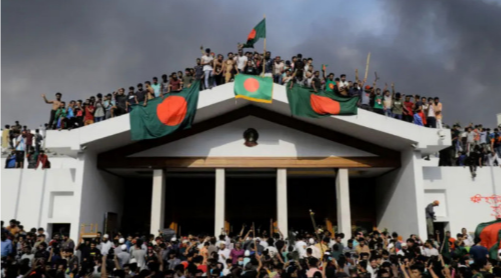Highlights:
- Charter to be incorporated into constitution
- Its provisions cannot be challenged in any court
- No specific deadline for implementation
- Constitutional recognition to mass uprising to be provided
- Justice for mass uprising murders to be ensured
- State honours for martyrs, rehabilitation for injured to be provided
The National Consensus Commission has sent the complete draft of the “July National Charter 2025” to political parties, proposing 84 reforms and seeking their commitment to eight pledges.
Multiple political parties confirmed the development to TBS today (16 August).
The draft charter’s pledge of implementation states that the people are the owners of the state, and their will is the supreme law. It states that political parties reflect the will of the people and, as such, have collectively formulated the charter based on extensive discussions.
The document also states that all provisions of the charter will be incorporated into the constitution, and in case of any conflict, the charter’s provisions will take precedence over the existing constitution or other laws.
The charter also stipulates that any questions regarding the interpretation of its provisions will be subject to the final jurisdiction of the Appellate Division of the Bangladesh Supreme Court. It further declares that all provisions, proposals, and recommendations of the charter will be legally enforceable, and their validity, necessity, or the authority to issue them cannot be challenged in any court.
The fifth pledge outlines a commitment to enact necessary constitutional amendments and new legislation to implement the charter’s proposals concerning Bangladesh’s overall state system, including the constitution, judiciary, electoral system, public administration, police system, and anti-corruption framework.
The sixth pledge promises to provide constitutional and state recognition to the historic significance of the July-August 2024 mass uprising, acknowledging the public’s continuous struggle for democracy, human rights, and the rule of law.
The seventh pledge is a collective declaration that the state will ensure justice for all the murders committed during the July-August 2024 uprising. It also commits to providing state honours for the martyrs, appropriate assistance for their families, and adequate medical care and rehabilitation for the injured.
The eighth pledge states that any proposals or recommendations in the “July National Charter 2025” that are considered immediately implementable will be fully executed by the government and other relevant authorities without any delay before the next national election.
Badiul Alam Majumder, a member of the National Consensus Commission, told TBS that they will now discuss the methods and procedures for implementing the reforms with experts, legal experts, and political parties.
“This is why the draft does not specify a concrete implementation method. The July National Charter will be finalised by adding and removing elements from this draft after consulting with everyone,” he said.
In an immediate reaction to the matter, Javed Rasin, joint convenor of the NCP, told this newspaper, “We are disappointed again. The specific implementation plan we talked about has not been mentioned. Also, some of the issues that were supposed to be implemented before the election have not been identified, and the implementation method has not been stated.”
He added, “So, all in all, this draft has created more confusion. I hope the commission will sit with the political parties again and resolve these issues.”
No specific deadline for implementation
The commission’s final draft indicates a shift from its earlier position by not setting a specific deadline for the implementation of the reforms.
In the initial draft published on 28 July, the commission had stipulated that political parties must commit to completing all reforms within two years of forming a government after the next general election.
However, the final draft states that the interim government and other relevant authorities must take “prompt, effective, and appropriate measures” to implement all “immediately implementable” recommendations before the election. The draft does not specify which recommendations fall into this category.
Of the total 84 issues, political parties have submitted a “note of dissent” on 13 of them. The BNP has the highest number of dissents with nine, while Jamaat-e-Islami has one. Some of the remaining parties submitted a note of dissent, either jointly with the BNP or independently.

